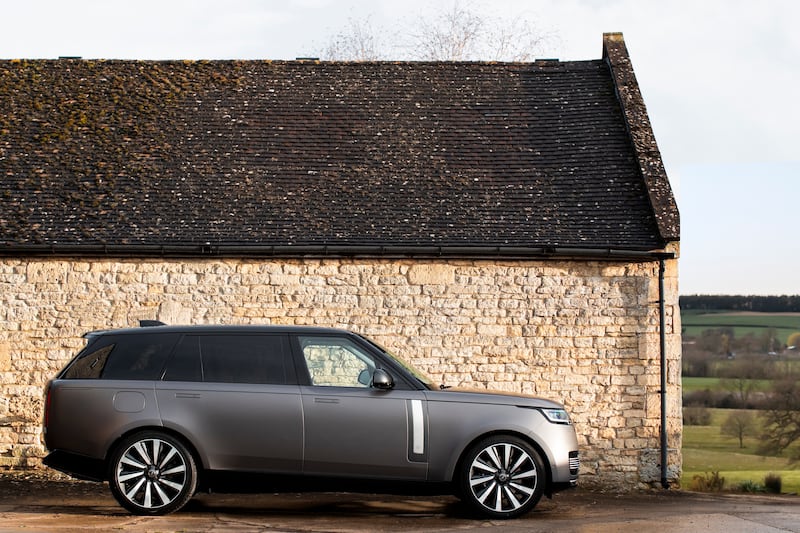A Ukrainian national judo team doctor living as a refugee in the UK has shared his excitement about making it to the Olympics after nearly losing his family to Russia’s invasion.
Vitalii Sazonov lives in Winchcombe, in the Cotswolds, with his wife Mariia, 37, and their three children – Polina, 14, Dima, eight, and Yeseniia, six.
They made it to the UK in August 2022 after Mr Sazonov’s family fled their home in Irpin, near Kyiv, and almost “met their death” due to a fast approaching enemy column in the days following Russia’s full-scale invasion on February 24 2022.
Now, Mr Sazonov has reflected on tending to the five Ukrainian judokas, alongside other team doctors, for treatment including physiotherapy and injuries, during the Olympics.

While speaking to the PA news agency from the French capital, he left the call at one point to help an athlete who required assistance.
“Judo is a very dramatic sport as there are a lot of throws in judo so it can be very dangerous,” the 39-year-old said.
“To prevent injury, I need to perform taping with strong sports tape and sometimes I need to fix a damaged joint.
“I think and feel that my job is very important and I’ve noticed that I’m not only a doctor now, I have to be a psychologist because professional high-skilled athletes trust me and the judo team is like a strong family – the whole Ukrainian team is a big family.”
One of his highlights of the Games so far has been speaking with his family during the opening ceremony.

“My family saw me during the opening ceremony on the TV and I surprised my wife by video calling her from the boat,” he said.
“I was waving to them and it was very exciting for them and for me because they could see the whole Ukrainian team.”
The last day of competition for judo ended over the weekend and despite Ukraine not securing any medals, Mr Sazonov said: “The Olympic Games are special competitions, unlike any other. Even world champions lose here. The enormous burden of responsibility weighs on athletes, which does not allow them to fully realise their potential.”
Ukrainians’ participation in the Olympics has been happening amid the ongoing war between their country and Russia.
For Mr Sazonov, the day Russia launched its full-scale invasion in Ukraine brings back feelings of anguish.

“I was abroad (in Spain) when the war started at a training camp for the best judokas of Ukrainian national team,” he said.
“My family stayed in Ukraine and it was an awful time for me, I couldn’t sleep and I lost the ability to speak properly.
“I was very worried for my family, but I couldn’t help them and for four days, my wife, my three children and my wife’s mother were hiding in a small two-by-two metre dressing room in an apartment in Irpin.”
His family decided to flee to Kyiv by driving along a highway and were close to losing their lives if it were not for a soldier.
“My family were lucky because they were saved by a Ukrainian solider who (was standing on a pedestrian bridge over the highway and) spotted an enemy column approaching quickly, which had already destroyed everything in its path,” he said.
“If that soldier had not stopped (them), my family would have met their death.”

Mr Sazonov and his family were reunited in Czechia in March 2022 after the latter spent time in countries including Slovakia, before reaching the UK on August 6 of that year via the Homes for Ukraine scheme.
They stayed with a host family in the Cotswolds until May 2023, with Mr Sazonov describing them as “friendly” and “warm”.
He moved into his own home with his family, adding he still regularly sees his previous hosts and they became friends.
He was able to rebuild his life in the UK thanks to World Jewish Relief (WJR)’s specialist training and employment programme – Step Ukraine – which he began in May and graduated from moments before the Olympics.
The programme, funded by the UK government, set Mr Sazonov up with an employment adviser and taught him English, and more widely, has supported almost 10,000 Ukrainian refugees in their efforts to settle and find employment in the UK.
He hopes to become a sports scientist in the UK, having specialised in sports medicine in Ukraine and previously working part-time at Irpin Children’s and Youth Sports School.
“I always wanted to help young sportspeople and I was very proud of my job, but the whole wing of the sports school was destroyed by Russians,” he said.
“I can now say that my family are happy and all my children go to school and play sports like football, rugby and tennis and they have made new friends.
“They speak English very well and some British people have said my youngest daughter speaks with a Cotswolds accent like a native.”









